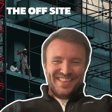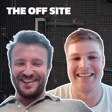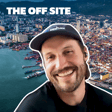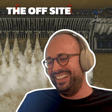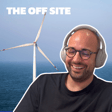
The $8 Trillion Megacity: Inside NEOM's Massive Budget Blowout
Join Jason and guest host Sam Hanisch as they explore three hot topics in construction and technology:
🏙️ NEOM Project Developments: Shocking revelations about Saudi Arabia's ambitious megacity project, including a staggering cost blowout from $500B to $8.8T, and the challenges of mega-project management.
🚇 Stockholm Metro Expansion: Stockholm's innovative approach to underground transit infrastructure, comparing construction methodologies and highlighting the benefits of strategic infrastructure planning.
👨💼 Leadership Transition at Procore: A significant leadership change at construction technology giant Procore and its implications for the industry amid rapid technological transformation.
Key Timestamps:
00:00 - Introduction
04:03 - NEOM discussion
20:35 - Stockholm Metro
30:49 - Procore leadership changes
Check out the Off Site newsletter here
Follow Carlos on Linkedin | Follow Jason on Linkedin | Check out Aphex




